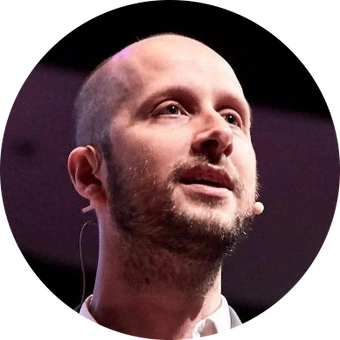Quantum Engineer - Systems Integration

Microsoft
Quantum Engineer - Systems Integration
Microsoft Development Center Copenhagen, Capital Region, Denmark
Save
Overview
Microsoft Quantum has assembled a talented and diverse international team to create the world’s first scalable quantum computing system. Our full-stack approach involves exciting innovations from physics on the quantum plane to providing global quantum services. With new developments happening at every part of the stack, it is more important than ever to characterize and validate how the individual components come together to form an integrated system. This role offers the opportunity to work at the forefront of physics and engineering, and to collaborate with a broad range of specialists from readout, control, software, and many other disciplines. Our Systems Integration team is looking for an experimentalist with a passion for interdisciplinary collaboration to help characterize and build the world’s first topological quantum computer.
Qualifications
Required/Minimum Qualifications
- Bachelor's Degree in Physics, Engineering, or related field AND experience in industry or in a research and development environment
- OR Master's Degree in Physics, Engineering, or related field
- OR equivalent experience.
- Experience with experimenting with low-dimensional semiconductors, superconductivity, or quantum information processing devices.
- Experience with RF/microwave electronics (RF reflectometry, impedance matching, dispersive gate sensing, etc.).
- Experience in developing code in a version-controlled environment (e.g. Git).
- Experience in hardware characterization and code bring-up.
Additional or Preferred Qualifications
- Bachelor's Degree in Physics, Engineering, or related field AND significant experience in industry or in a research and development environment
- OR Master's Degree in Physics, Engineering, or related field AND significant experience in industry or in a research and development environment
- OR Doctorate in Physics, Engineering, or related field
- OR equivalent experience.
- Solid (PhD included) experience with low-noise electronic measurements (lockin amplifiers, analog pre-amps, etc.), cryogenic techniques (He3 cryostats or dilution refrigerators), electrical transport characterization (for semiconductors, dielectrics, and superconductors), and RF/microwave measurement techniques.
- Solid (PhD included) experience with data acquisition and programming in a high-level language (e.g. Python).
- Experience in automating measurement setups for higher throughput.
- Experience with the physics of Majorana bound states and topological properties of matter.
- Experience with industrial statistics techniques and tools (e.g. JMP).
- Team player with excellent communication skills.
- Ability to be flexible and adapt to new situations in a rapidly changing research environment.
- Demonstrated experience with report writing and documentation.
Responsibilities
This role involves a combination of experimental work and communication. The Quantum Engineer will be responsible for characterizing both the system and semiconductor/superconductor devices, as well as communicating across all pillars of the quantum program to understand system requirements and the interfaces between the different components. The candidate should have a background in experimental condensed matter physics, applied physics, or electrical engineering with experience in cryogenics and semiconductor or superconductor device measurements.
Key responsibilities of the role:
- Performing room temperature and cryogenic characterization of system performance, including characterization of semiconducting/superconducting devices. Contributing to methods of measuring devices and system performance.
- Analyzing, documenting, and communicating the results of system characterization tests.
- Working with the quantum program’s code infrastructure and helping to document and streamline new measurement and analysis code.
- Collaborating across teams to understand the requirements of different components within the system. Validating that the integrated system meets all performance requirements.
- Helping to design new experiments and devices to debug system performance issues when they arise.
- Characterizing and qualifying room temperature hardware in relation to system performance requirements, and helping to develop code infrastructure for supporting new instrumentation.
